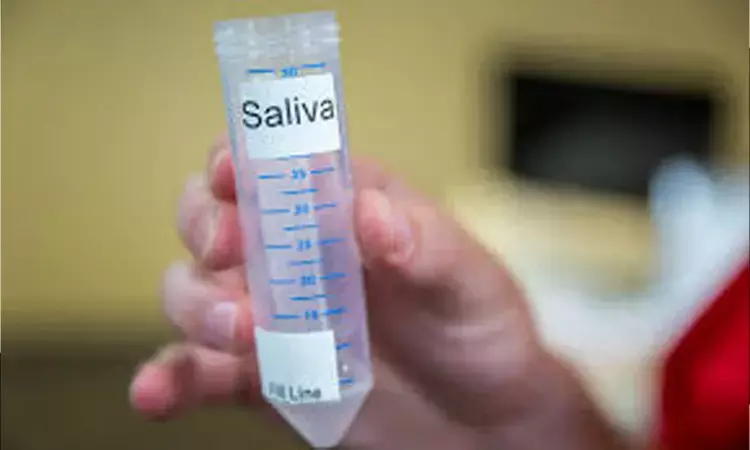- Home
- Medical news & Guidelines
- Anesthesiology
- Cardiology and CTVS
- Critical Care
- Dentistry
- Dermatology
- Diabetes and Endocrinology
- ENT
- Gastroenterology
- Medicine
- Nephrology
- Neurology
- Obstretics-Gynaecology
- Oncology
- Ophthalmology
- Orthopaedics
- Pediatrics-Neonatology
- Psychiatry
- Pulmonology
- Radiology
- Surgery
- Urology
- Laboratory Medicine
- Diet
- Nursing
- Paramedical
- Physiotherapy
- Health news
- Fact Check
- Bone Health Fact Check
- Brain Health Fact Check
- Cancer Related Fact Check
- Child Care Fact Check
- Dental and oral health fact check
- Diabetes and metabolic health fact check
- Diet and Nutrition Fact Check
- Eye and ENT Care Fact Check
- Fitness fact check
- Gut health fact check
- Heart health fact check
- Kidney health fact check
- Medical education fact check
- Men's health fact check
- Respiratory fact check
- Skin and hair care fact check
- Vaccine and Immunization fact check
- Women's health fact check
- AYUSH
- State News
- Andaman and Nicobar Islands
- Andhra Pradesh
- Arunachal Pradesh
- Assam
- Bihar
- Chandigarh
- Chattisgarh
- Dadra and Nagar Haveli
- Daman and Diu
- Delhi
- Goa
- Gujarat
- Haryana
- Himachal Pradesh
- Jammu & Kashmir
- Jharkhand
- Karnataka
- Kerala
- Ladakh
- Lakshadweep
- Madhya Pradesh
- Maharashtra
- Manipur
- Meghalaya
- Mizoram
- Nagaland
- Odisha
- Puducherry
- Punjab
- Rajasthan
- Sikkim
- Tamil Nadu
- Telangana
- Tripura
- Uttar Pradesh
- Uttrakhand
- West Bengal
- Medical Education
- Industry
Saliva- a key component in maintaining a balanced oral microbiome, Study finds

According to recent findings, it has been observed that saliva plays a significant role in keeping the relationship between the host and oral microbiota in a symbiotic state. However, in conditions with salivary gland dysfunction, the natural balance of the oral microbiome is often disturbed, leading to dysbiosis and associated risks of gingivitis, caries and fungal infection.
The study is published in the Journal of Dentistry.
Saliva is a key component in maintaining a balanced oral microbiome and it exerts a large variety of functions that help to promote oral health. The importance of the complex interaction between host, saliva and the oral microbiota becomes evident when the salivary flow is reduced, and the composition is altered, leading to dysbiosis and the risk of associated oral diseases such as dental caries, gingivitis and oral fungal infections.
Salivary constituents provide an important nutritional source for several microorganisms, and the complex interaction of many salivary inorganic and organic constituents is essential for the maintenance of a balanced and beneficial microbiota and for symbiosis.
Hence, Anne Marie Lynge Pedersen and associates from the Oral Medicine and Oral Pathology, Department of Odontology, Faculty of Health and Medical Sciences, University of Copenhagen, Copenhagen, Denmark conducted this study to provide an update on the current understanding of how saliva and its various constituents directly and indirectly affect oral bacteria and thereby play a role in the modulation and maintenance of a healthy oral microbiota and also the associations with symbiosis and dysbiosis.
The authors laid out the following key facts-
- Saliva plays an essential role in shaping and maintaining the ecological equilibrium of the resident oral microbiota.
- Saliva contributes to the formation of the salivary pellicle, which covers the oral hard and soft tissues, and thereby determines the initial adhesion and colonisation of microorganisms.
- Saliva facilitates clearance of dietary carbohydrates and microorganisms from the oral cavity, but also supplies bacteria with nutrients through enzymatic breakdown of dietary starch and proteins and salivary glycoproteins.
- In addition, saliva comprises proteins such as mucins, which block the adherence of certain microorganisms to oral surfaces through binding and aggregating mechanisms.
- Saliva also provides antimicrobial activity through numerous proteins and peptides including mucins, lactoferrin, lysozyme, lactoperoxidase, statherin, histatins and secretory immuonoglobulin A.
Hence, they concluded that "a balanced oral microbiome is important for the maintenance of oral health and symbiosis. Conditions associated with salivary gland hypofunction, impaired oral clearance, low salivary pH and altered salivary composition, often lead to perturbation of the function and composition of the oral microbiome causing dysbiosis, and an associated risk of oral disease."
Dr. Nandita Mohan is a practicing pediatric dentist with more than 5 years of clinical work experience. Along with this, she is equally interested in keeping herself up to date about the latest developments in the field of medicine and dentistry which is the driving force for her to be in association with Medical Dialogues. She also has her name attached with many publications; both national and international. She has pursued her BDS from Rajiv Gandhi University of Health Sciences, Bangalore and later went to enter her dream specialty (MDS) in the Department of Pedodontics and Preventive Dentistry from Pt. B.D. Sharma University of Health Sciences. Through all the years of experience, her core interest in learning something new has never stopped. She can be contacted at editorial@medicaldialogues.in. Contact no. 011-43720751
Dr Kamal Kant Kohli-MBBS, DTCD- a chest specialist with more than 30 years of practice and a flair for writing clinical articles, Dr Kamal Kant Kohli joined Medical Dialogues as a Chief Editor of Medical News. Besides writing articles, as an editor, he proofreads and verifies all the medical content published on Medical Dialogues including those coming from journals, studies,medical conferences,guidelines etc. Email: drkohli@medicaldialogues.in. Contact no. 011-43720751


